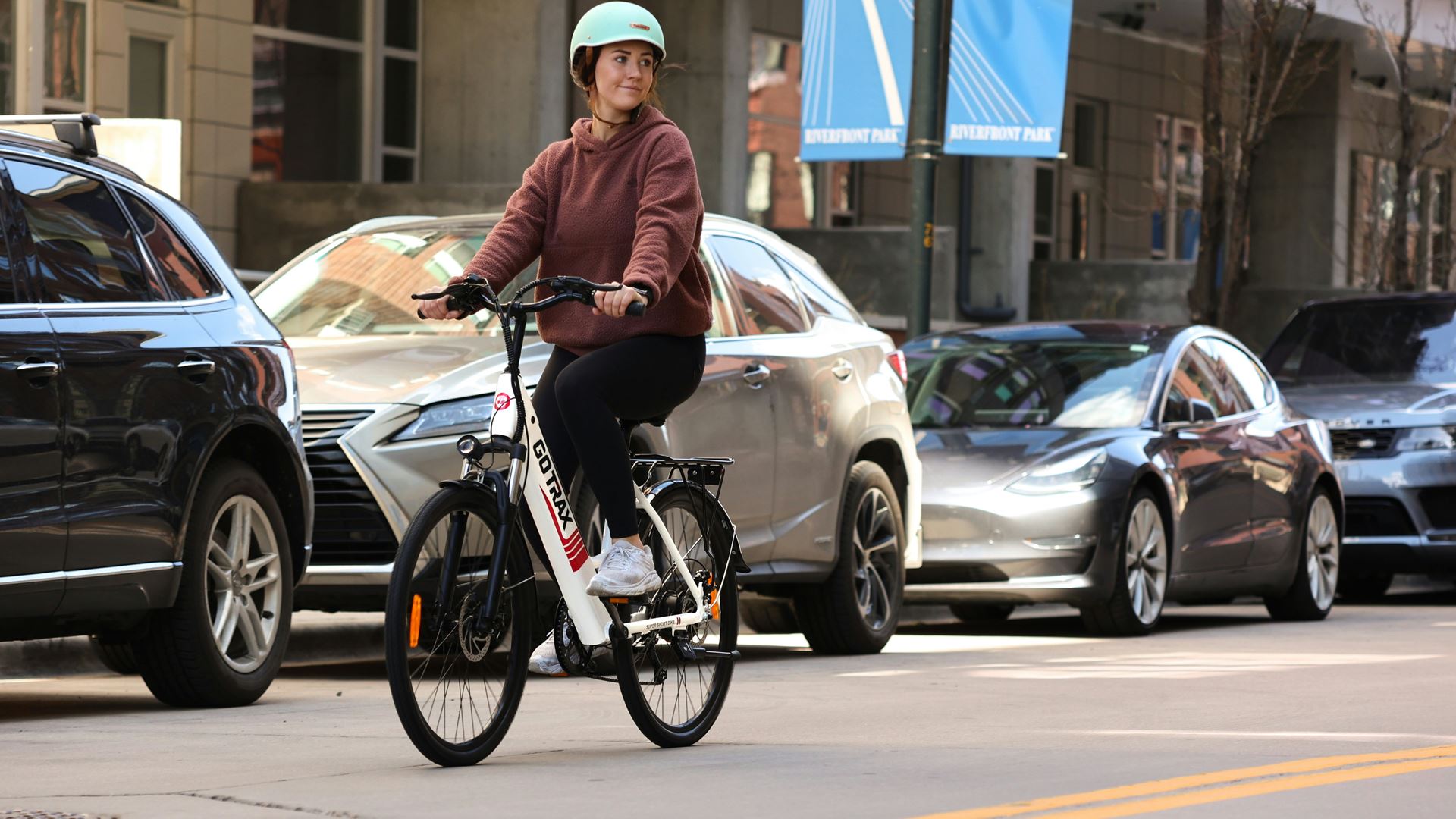They are replacing more and more cars in cities, improving congestion, and reducing the climate impact. Their technological development is progressing rapidly. E-bikes are revolutionising our mobility and offering new levels of comfort.
Bicycles equal freedom. Anyone who regularly mounts their bike and soars through the streets of their neighbourhood will agree. The French ethnologist Marc Augé once proclaimed: “Get on your bike to change your life!” Now, more than ever, we need modern pedelecs in order to create a completely new form of everyday mobility – without losing out on our freedom of movement.
E-bikes occupy a special position here. E-bikes are far superior to cars in terms of carbon footprint: while cars emit an average of 2,500 grams of CO₂ per kilometre, e-bikes produce only 14 grams of CO₂ per kilometre. Battery-powered bicycles are also ideal for commuters, taking them from the suburbs into the city centre. The average distance travelled by car and motorbike in Germany is around 16 kilometres per trip, according to a study by the Federal Environment Agency for the year 2023. Such short distances could easily be managed on an e-bike.
Global mobility is undergoing a massive shift. More and more people are switching from cars to bicycles. And unlike the ailing e-car market, the growing sales figures for e-bikes look like the first chapters of a true success story.
Demand for e-bikes growing worldwide
Global sales of e-bikes have grown exponentially over the past 5 years. According to Fortune Business Insight's 2024 market analysis, the global e-bike market will grow from $50 billion in 2024 to more than $148 billion in 2032. Europe is in the lead: in countries such as Germany, the Netherlands, and Belgium, e-bikes have long been an integral part of urban traffic. In China, the world's largest e-bike market, electric two-wheelers have been a mass phenomenon for many years now. They are also becoming increasingly popular in North America, while the Latin American and African markets are still in their infancy, though bearing a huge potential.
So what is it that makes e-bikes so successful? “They combine the best of both worlds: the freedom and independence of cycling with the efficiency and ease of a motor. They make mobility accessible, environmentally friendly, and suitable for everyday use – for commuters, sports enthusiasts, and casual users alike,” says Elena Laidler-Zettelmeyer, Head of Strategic Cooperation at the Future of Cycling business association. Particularly company bike leasing schemes have been a growth driver for the entire e-cycling sector in recent years. According to a study by Deloitte 2024, sales in the company bike leasing sector in Germany have increased almost fivefold between 2019 and 2023, with close to 80% of leased bicycles being e-powered pedelecs.
E-bikes are getting smarter and more comfortable
The clear focus in development is on more powerful and longer-lasting batteries. Lithium-ion batteries are now lighter, more compact, and offer a greater radius than ever before. “E-bike batteries have come a long way in recent years. Our batteries are designed to provide reliable performance and support over years,” says Jonathan Davis of Shimano Europe.
On top of this, manufacturers have made enormous efforts in recent years to improve the performance, efficiency, and user-friendliness of their models – all aspects that are crucial for the end user of an e-bike. “For regular riders who have invested between €2,000 and €5,000 in an e-bike, it's important to know that the system they're relying on adds significant value,” says Davis.
The trend is going towards the increasing integration of digital technologies: modern e-bikes are often equipped with GPS, Bluetooth, and smartphone apps that enable navigation, anti-theft protection, and fitness tracking. “Digitalisation not only makes e-bikes smarter, but also safer and more comfortable,” says Laidler-Zettelmeyer.
“E-bike batteries have come a long way in recent years. Our batteries are designed to provide reliable performance and support over years.”
Jonathan Davis,
Shimano Europe
Innovation across the board
There are also innovations in drive systems. Mid-drives –motors that are integrated directly into the pedal cranks– provide a natural assisted riding experience and have become the gold standard in many models. Manufacturers are also experimenting with alternative power technologies such as hydrogen fuel cells. More and more e-bikes come equipped with automatic gear shift systems. Enviolo, for example, offers continuously variable automatic shifting. Riese & Müller is improving the connectivity of its bikes with RX Connect. Their Tarran T1 Pro cargo bike, equipped with a touchscreen, Bluetooth speakers, and GPS tracking, is particularly innovative.
Read the full article here:

